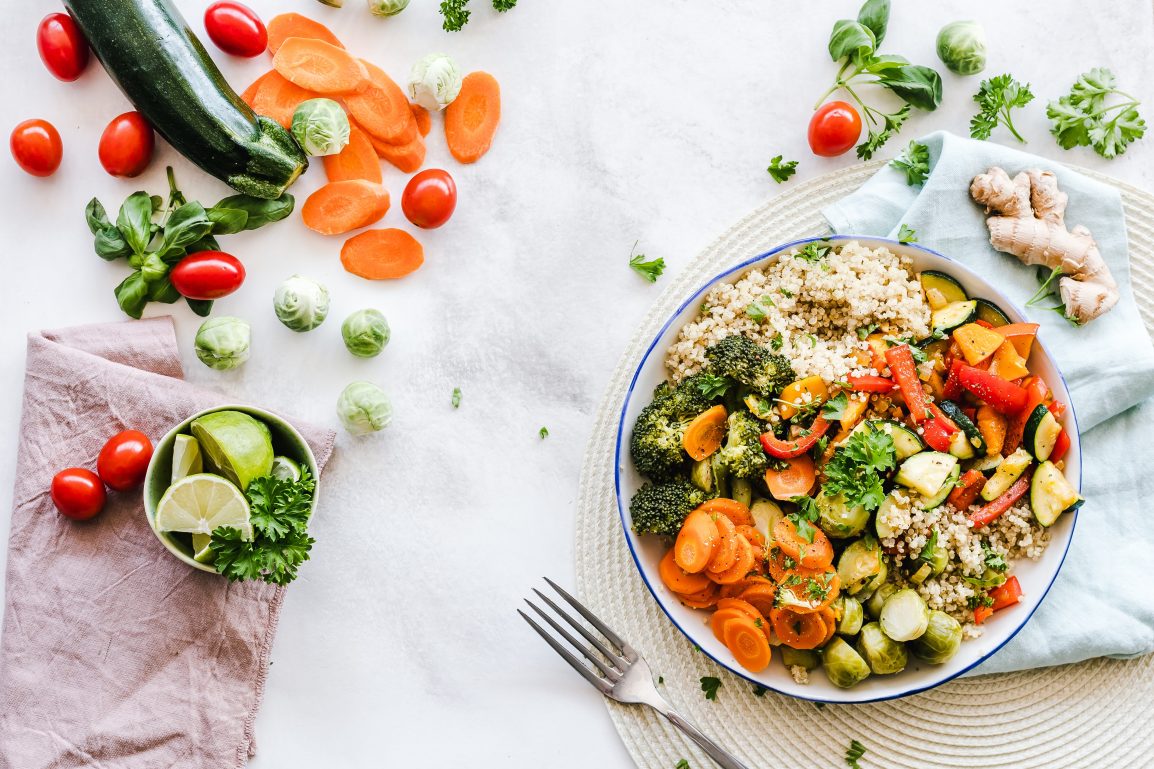Spoiler Alert: This post discusses the chemical effects that certain nutrients have on the functioning of our brains. It will contain big, scary words that you may not initially understand. However, I hope you will have confidence in your capacity to grasp difficult concepts and my capacity to explain things clearly and concisely.
[divider height=”40″]
As Einstein once declared, “If you can’t explain it simply, you don’t understand it well enough.”
So what are neurotransmitters? According to Eric H. Chudler, Ph.D. of Neuroscience For Kids, neurotransmitters are the little messengers that your brain uses to communicate with the rest of your body. In addition to making your heart beat and my fingers type, these guys are also responsible for moods. For our purposes, we will examine two types of neurotransmitters that change disposition. Excitatory Neurotransmitters, like norepinephrine, over-stimulate our body and mind, which generally has an adverse affect on happiness. These are, at times, messengers of stress, pressure, worry, and anxiety. Inhibitory Neurotransmitters like serotonin, on the other hand, seem to calm us, making us feel more content, tranquil, and happy. The best moods result from a balance between both types of these little messengers.
But what does that have to do with food? Well, neurotransmitters are produced by the compounds in the foods we consume. Spinach, for example, contains high concentrations of folate, a B-vitamin used to create serotonin, the inhibitory neurotransmitter most commonly attributed to happiness. Bananas and turkey carry tryptophan, an amino acid that is converted into serotonin in the brain.
Another major inhibitory neurotransmitter that aids the stabilization of mood is gamma aminobutyric acid (GABA). This scary word is more commonly referred to as “nature’s Valium” because of its “tranquilizing” effects. GABA is a by-product of the Krebs Cycle, the process that converts nutrients (what you eat) to energy. Grass-fed beef, sesame, and sunflower seeds all have high concentrations of this neurotransmitter’s building block, an amino acid called I-glutamine. Because I-glutamine can cross the blood-brain barrier and aid in the Krebs cycle, foods that contain this amino acid can affect your happiness.
But that’s not all. Drew Ramsey, M.D., Assistant Clinical Professor of Psychiatry at Columbia University and New York State Psychiatric Institute, writes this about today’s health habits in correlation to neuroscience:
“The nation’s epidemic levels of obesity and diabetes have received plenty of news coverage, but rates of brain disorders like depression and dementia are also skyrocketing, and the American diet is partly to blame. Why? Because so many of the nutrients that the human brain relies upon for its growth, healing and healthy functioning have been stripped from the food supply by modern food processing and factory farming.”
Later in his article, Ramsey adds that the preservatives, pesticides, and plastic packaging that we have become so accustomed to are, in fact, poisoning us! Through their slew of new, unfriendly, synthetic chemicals, these artificial substances are stripping our brains of its best cognitive and physical functions, one of which being the maintenance of happiness. If you don’t believe Dr. Ramsey, look at the statistics! A recent study found that adolescents with diets of low nutritional value are 79 percent more likely to suffer from depression. Another study discovered that prolonging a diet high in trans fats (which are found in processed foods) for six years raises the risk of depression by 42 percent among adults. Lastly, an additional investigation by the Harvard School of Public Health concluded that women whose diets incorporated the greatest number of healthy omega-3 fats (found in fish, flaxseed, and spinach) and the lowest number of unhealthy omega-6 fats were significantly less likely to be depressed.
If you get nothing else from this post, understand this: What you put into your body matters!! It affects your brain functioning, as well as everything else you do and feel. The evidence from these nutritional experiments suggests that when you purposely consume “real” foods – foods with true nutritional value – you are happier, healthier, and more productive. So eat well! Every day, show your body how much you love it by consuming things that will make you healthier and happier. Your body – and your mind – will return the favor.

